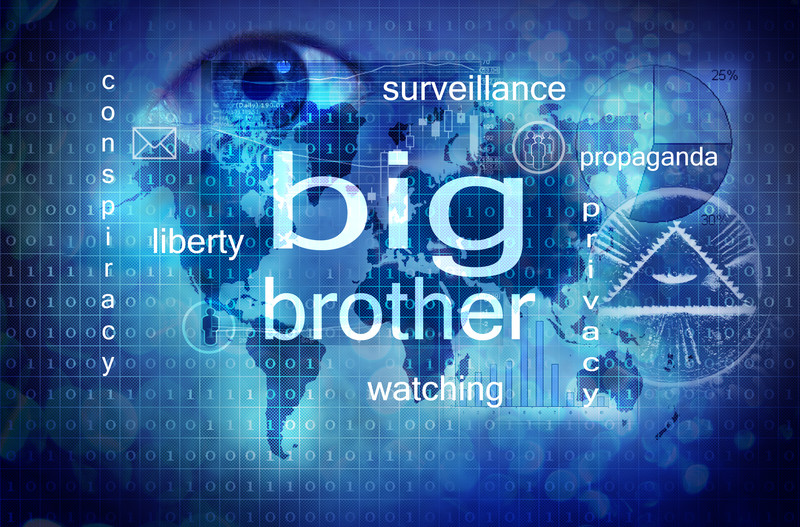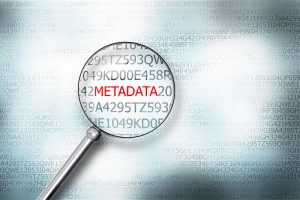It’s possible in your country of residence the use of the internet for entertainment and information has never been in question, open, available and free. It’s a privilege not everyone around the world enjoys, which you soon discover during a visit to any of these nations. In such restrictive societies the internet might be accessible but highly censored, throttled or specific sections blocked. Government firewalls and censors are very real from China, Russia, Iran, and Sudan to Cuba, but there’s another side to this. While restrictive governments are awash globally, internet censorship and surveillance happens even in the freest societies in the western hemisphere.

Internet Censorship Around the World
Worldwide, internet censorship paints a multicolored image of various levels of internet censors in place. While the internet is available in almost every nation globally, including the most restrictive or lawless territories such as Somalia, elaborate and deliberate government restrictions placed on websites ensures only government sanctioned content is accessible. Political content is heavily filtered or wholly blocked in many countries to control political themes like environmental controversies, human rights, media and news, freedom of expression and religion.
Around the world, ruling regimes (usually autocratic ones even if by so-called “democratically held” elections) regularly suppress the political opposition via filtering and a tight-fisted control of the state media. Technically, every nation globally blocks some political content in one way or the other, from the United States, UK, Russia, China to Germany and Australia except Lebanon and Hungary. Some countries are, however, heavy-handed blockers of political content such as Kuwait, Bahrain, Egypt, Thailand, South Korea, Turkey, Kazakhstan, and India. In fact, Yemen, Uzbekistan, Indonesia, China, Saudi Arabia, and Pakistan are pervasive filters of political content.
In China, both surveillance and internet censorship are an everyday part of life. The Chinese government has created one of the most complicated internet information control and filtering system globally with stringent censorship of websites with content critical to the ruling communist party, especially human rights websites.
Here’s a disturbing report by the Financial Times on China’s increasing crackdown on Internet freedoms:
One of the themes pervading internet censorship and surveillance is religion. Religious filtering falls mostly within social and political constructs and intersects across the board. A good example is where regimes stifle and control religious content in the pretext of avoiding political upheaval. In the MENA (the Middle East and North Africa) region religious internet content filtering and blocking happen severely, especially sectarian content. For example, Bahrain, UAE, and Saudi Arabia block Shiite content while Iran blocks Sunni content. At the same time, Muslim majority nations from Malaysia, Indonesia, Iran, UAE, Yemen, to Saudi Arabia have filtered sites promoting Christianity in their territories or critical of Islam as a whole.
Social content as controversial as it might be at times is a huge barometer of weighing the internet censorship and surveillance or lack of it in a specific country. Social filtering refers to blocking or filtering content going against the socially accepted way of life or norms such as drugs and alcohol, gambling, online dating, LGBTQ and pornography content. Pornography is arguably the most filtered category around the world, particularly in Singapore, Russia, China and MENA countries, Indonesia, Thailand, Kazakhstan, South Korea, Malaysia, and Pakistan. While many nations block lots of different categories of internet content, Lebanon and Hungary only block gambling websites.
 Internet Surveillance Growing More Prevalent As Government’s Justification Broadens
Internet Surveillance Growing More Prevalent As Government’s Justification Broadens
Online surveillance is monitoring the activity of data as it gets transferred between computer networks. In most cases, government internet surveillance is done covertly, which can also be done by individuals, organizations, criminal groups, and corporations for diverse reasons. Internet surveillance can be legal or illegal and independent government bodies, or court authorization may be required or not depending on the internet surveillance law of the country.
How Does Internet Surveillance Work?
Often, surveillance is carried out covertly, whether illegally or legally. A good example is the signing of the extension of Section 702 of FISA (Foreign Intelligence Surveillance Act) by U.S. President Donald Trump in January 2018, reauthorizing collection of foreign intelligence. It means whether the intelligence is collected covertly or not, it has legal backing. The 702 Bill allows the National Security Agency to eavesdrop on various digital communications of foreigners using companies and networks such as Verizon Communications, Facebook, and Google. In the process, however, Americans are also routinely swept up in the surveillance, particularly if they’re connected with foreign targets based overseas with no court warrant needed to search such communication.
Without the previous protections in the law internet service providers from CenturyLink to Verizon don’t have to request permission from users before selling and tracking information provided by people.
Think the US doesn’t surveil? The award-winning program, Frontline, did a detailed documentary on ‘United States of Secrets’ that shows the shocking level of surveillance on its citizens. Watch here:
Across the world, internet surveillance is a reality. In the last few years, the trend in the world of technology has been the commercialization and development of surveillance tools for governments. Government surveillance software is perpetually in operation unobtrusively by installing software on computers and mobile communication devices of their targets. In most cases, such as in Russia, Iran, and China, surveillance tools target activists, journalists, and political dissidents. In February 2017, critics accused Iran of launching cyber-attacks against human rights campaigners and activists including those outside the country. Some malware is so efficient that it’s able to gain access to all types of Smartphone content from contact lists, messages, GPS locators, applications, photos to audio files.
Is Internet Censorship and Surveillance Always Negative?
Life was simpler and a lot more private before the internet. Now simply surfing could expose you to many hidden dangers. You wouldn’t want anyone installing a camera in your home watching you 24/7 or having all the streets lined with cameras tracking your every more. So, why would you allow someone to see what you do online, who you connect with, what messages you send, what you are doing with your phone or who you talk to?
When Surveillance Is A Good Thing
Depending on where you live, society and way of life, Internet censorship pros and cons are observable. For instance, if censorship and surveillance of extremist websites and accounts on social media aren’t done, people from young children to adults would be entertained with horrific beheadings and gore.
Also, some vices are unacceptable universally and require intense surveillance and censorship wherever possible, such as sex trafficking, child pornography, human trafficking and illicit drugs access.
Surveillance can also limit cases of identity theft and restrict identity information sharing and spread of fake news. National security globally has claimed to monitor communications over the years, including on the internet, has had a considerable impact on national security in the deterrence of terrorist activities.
When It Is A Bad Thing
On the flipside, surveillance and censorship opens up a huge window of abuse by government agencies. It’s never clear who watches those doing the surveillance, and their motives might be counter to what they claim to be safeguarding us against.
Surveillance and internet censorship restricts access to information with regimes from India, Egypt to MENA countries arresting people for sharing content on social media such as Facebook. Without truth and awareness of what is happening, people become ignorant, unaware of their rights and limits entrepreneurship and commercial opportunities.
The 702 Bill already in operation and many other laws in different countries allowing internet censorship and surveillance mean internet providers will track your history and relay the information to government agencies. Your information is liable to be sold to third parties for commercial use such as sending you strategic ads.
Privacy Is Your Fundamental Right
Glenn Greenwald, the journalist best-known for breaking the story on the massive US government surveillance program exposed by Edward Snowden has this to say about why your privacy matters:
Secure Your Right to Safe, Unrestricted Internet Access
Protect your information and unobtrusive clandestine surveillance by governments, ISPs (internet service providers), corporates and individuals by using VPNs (virtual private networks). VPNs offer a unique, free and safe virtual space to you alone to access and share information. All web traffic is encrypted from end to end so no one is able to see what you are seeing.
Most importantly, avoid most free VPNs as they’ve been used before to prey on users without their knowledge by transforming their computers into hijacked devices or botnets.
For a guide on how to spot a good VPN from the dozens out there, check out our guide to selecting your next VPN. Our top recommendation for a trusted VPN that helps you circumvent government blocks and at the same time offers you privacy is VyprVPN. Check it out here.
Leave a Reply
You must be logged in to post a comment.